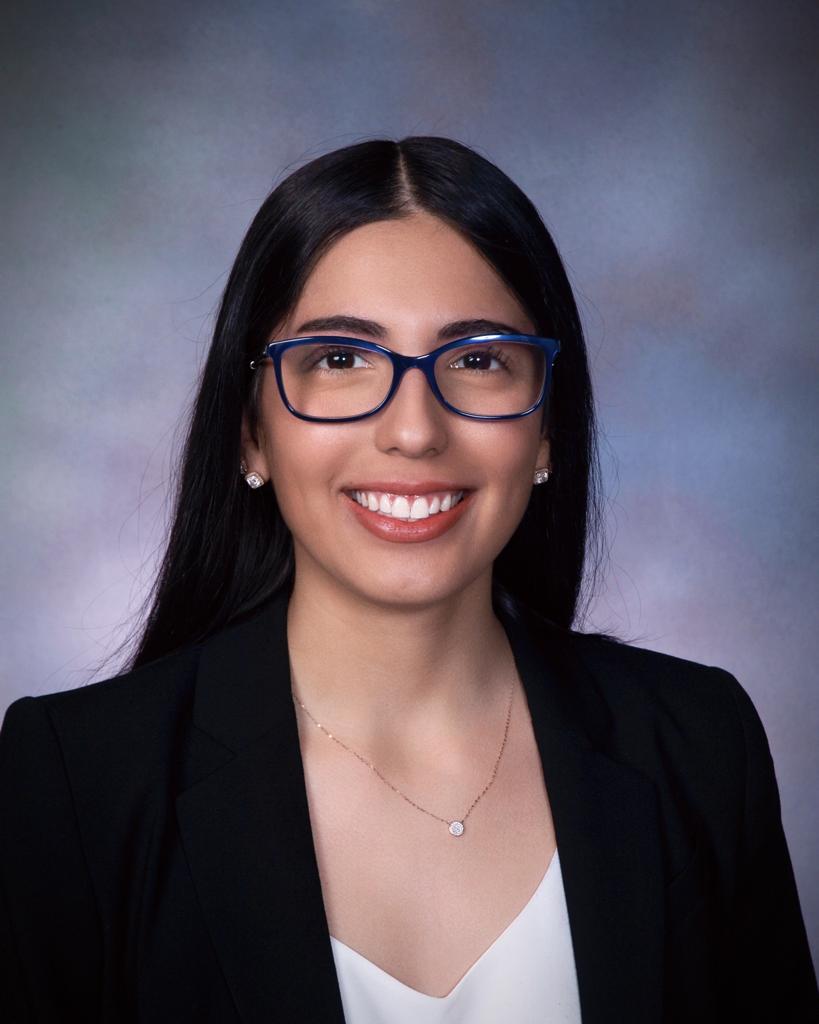 |
Luz VelazquezFulbright English Teaching Assistant at the Fulbright Program in Lo Groño, Spain |
|
|
This morning I sat down with Luz Velazquez. Luz dialed in from Lo Groño, Spain, where she is finishing a Fulbright teaching fellowship. Luz started her fellowship in September of 2021 and will be starting her Pickering Fellowship in June. Luz works with all ages within the school, instructing students from 3 to 16 years old. Working as both an assistant and main instructor, she spoke emphatically about her contributions to the school: “Because the program is bilingual, I help the students in the natural sciences and social sciences understand the material and I serve as more of an assistant in those roles.” Luz spoke about her own, independent, English teaching experiences and the creative freedom she enjoys in her role: “I'm constantly planning activities and lessons that are relevant to their other course content, but also I have the freedom and liberty to bring my own ideas and introduce American culture into the classroom. With it being Black History Month, this past week, I taught them about Nina Simone and Otis Redding and we talked about music and we did music activities centered around black artists. So it's just cool because these kids have never seen things like this and have never been exposed to American culture from an educational standpoint.” In addition to the teaching experience, Luz considers the student interactions as the most personally rewarding part of her Fulbright experience: “There are a lot of students in the classroom that are not at the same level as their peers. I'll walk into the first grade or third grade class with the material I’m expected to teach and I know that truthfully, half are not retaining the material just due to the fact that they don't comprehend what I'm saying at all. So while that has been really challenging, it’s also the most rewarding because just in the last five months of being here, I've seen so much growth in their language ability, so it is such a beautiful moment when I hand out an activity or lead something and I see a student who used to not understand much now being able to confidently fill a worksheet out or raise their hand shout out an answer and break out of their shell too, because when there's that language barrier, they're super timid in the beginning, and now they're just like not afraid to make mistakes. Like they'll shout out the answer even if it's wrong. I love when they find that newfound confidence in their ability and they see that they can do it. I come home and I feel so satisfied on those days when I see those students do that.” After finishing the Fulbright Fellowship, Luz is looking forward to beginning the Thomas R. Pickering Foreign Affairs Fellowship Program and beginning her graduate studies. In the summer after her first year of her masters, Luz will be completing a summer internship in DC with the Department of State Office, and then after she graduates from her masters program, she will be working at an embassy overseas for the summer. “And so that's, like, the full exposure,” Luz added about the program scope, “This is what your life will look like before they send you out. So you get a taste of it and you get to experience it. And then once you come back, then you start A100, which is kind of like the diplomat training and that will help you be ready to embark on your five year commitment to the Department of State. And then they ship you where you want to go and where they need you and for the next five years, you're traveling.” Looking back, Luz’s accomplishments are impressive to say the least. When I asked her how she got started with foriegn affairs, Luz laughed, stating, “Yeah, so um, truthfully, it was not a linear process; It was pretty all over the place. As a first generation student, I came in thinking I’d pick a career that allows me to build some economic stability and mobility. So I started off in computer science and did not like that experience. I didn't feel I didn't feel like I could do the work that mattered to me the most in that field.” Luz attributes a lot of her own motivations for her career choices to her personal experience: “I come from a family of immigrants. And all these identities really shifted me to like to work in human rights and advocacy work. I just didn’t know how I could do that in an effective way. And so after I had this JFEW SUNY program and mentors at Binghamton really guide me in this process, I just found myself drawn to foreign affairs because I knew I could advocate for my community and go about creating policy change that could really impact my community on a global scale. So yeah, it really wasn't a quick like a quick process and a quick path and realization. It kind of took a lot of trial and error and talking with mentors and experiences.”
|
||